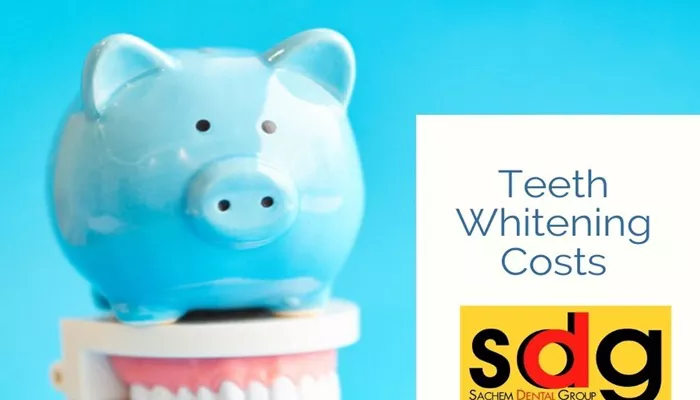Teeth whitening is a cosmetic dental procedure aimed at lightening the color of teeth and removing stains to enhance the appearance of your smile. It involves the use of bleaching agents, typically hydrogen peroxide or carbamide peroxide, which penetrate the enamel to break down discoloration and stains. This process can significantly improve the brightness of your teeth, boosting confidence and oral aesthetics.
Teeth whitening is not a treatment for dental diseases such as gum disease or root canal infections but is often considered after these conditions are treated to ensure oral health is optimal before cosmetic procedures.
Types of Teeth Whitening Treatments
There are several types of teeth whitening treatments available, each varying in method, intensity, and cost:
In-Office Professional Whitening: This is performed by dentists using high-concentration bleaching agents. The procedure is quick, often lasting about an hour, and provides immediate visible results. Dentists protect gums with barriers to prevent irritation during treatment.
Take-Home Whitening Kits from Dentists: These kits contain custom-fitted trays and professional-grade bleaching gel. Patients apply the gel at home over several days or weeks, allowing gradual whitening.
Over-the-Counter Whitening Products: These include whitening strips, gels, and toothpaste available without prescription. They contain lower concentrations of bleaching agents and take longer to show results.
Natural Remedies: Some people use home remedies like baking soda or activated charcoal, but these are less effective and not recommended by dental professionals.
Factors Influencing Teeth Whitening Costs
Several factors affect the cost of teeth whitening in Ghana:
Type of Whitening Procedure: Professional treatments cost more due to higher concentration agents and dental supervision.
Dental Clinic Location and Reputation: Clinics in urban centers or with highly experienced dentists may charge more.
Extent of Staining: Severe discoloration may require more sessions, increasing costs.
Pre-existing Dental Conditions: Issues like gum disease or the need for root canal treatment must be addressed before whitening, adding to overall expenses.
Dental Restorations: Crowns, veneers, or fillings do not whiten and may require replacement or special consideration, affecting cost.
Teeth Whitening Costs in Ghana
The cost of teeth whitening in Ghana varies depending on the type of treatment, the dental clinic, and the materials used.
While exact prices can fluctuate, here is a general overview:
| Treatment Type | Estimated Cost in Ghanaian Cedi (GHS) |
| In-Office Professional Whitening | 800 – 2,500 GHS |
| Take-Home Whitening Kits | 400 – 1,200 GHS |
| Over-the-Counter Products | 50 – 300 GHS |
In-office treatments are the most expensive but offer the fastest and most effective results. Take-home kits prescribed by dentists provide a balance between cost and effectiveness. Over-the-counter products are the cheapest but usually less effective and slower.
Benefits of Professional Teeth Whitening in Ghana
Professional teeth whitening offers several advantages over at-home or over-the-counter methods:
Safety: Dentists evaluate your oral health, ensuring that conditions like gum disease or cavities are treated before whitening to prevent complications.
Effectiveness: Higher concentrations of bleaching agents produce faster and more noticeable results.
Customization: Treatments are tailored to your dental history and specific staining.
Reduced Side Effects: Protective measures minimize risks like gum irritation and tooth sensitivity.
Long-lasting Results: Professional whitening tends to maintain brightness longer than other methods.
Potential Side Effects of Teeth Whitening
While teeth whitening is generally safe, some side effects can occur, especially if treatments are not properly supervised:
- Tooth Sensitivity: The most common side effect, sensitivity occurs when bleaching agents penetrate the enamel and affect the dentin layer. Sensitivity to hot and cold may last a few days after treatment.
- Gum Irritation: Contact of bleaching agents with gums can cause temporary redness and discomfort.
- Enamel Damage: Overuse or misuse of whitening products can weaken enamel, increasing the risk of decay.
- Uneven Whitening: Dental restorations like crowns and veneers do not whiten, which may cause uneven color.
- Inflammation or Pulpal Damage: Rarely, bleaching agents may irritate the tooth pulp, especially if there are cracks or untreated cavities.
To minimize side effects, it is vital to consult a dentist, especially if you have sensitive teeth, gum disease, or recent root canal treatments.
Conclusion
Teeth whitening in Ghana is a popular cosmetic dental service that can significantly enhance your smile and confidence. The costs vary widely depending on the treatment type, clinic, and individual dental needs. Professional teeth whitening, though more expensive, offers safer and more effective results, especially when pre-existing dental issues like gum disease or root canal treatments are managed beforehand.
Before undergoing whitening, a dental consultation is essential to ensure your teeth and gums are healthy, preventing complications and optimizing outcomes. While side effects like sensitivity and gum irritation are possible, they are usually temporary and manageable under professional care.

